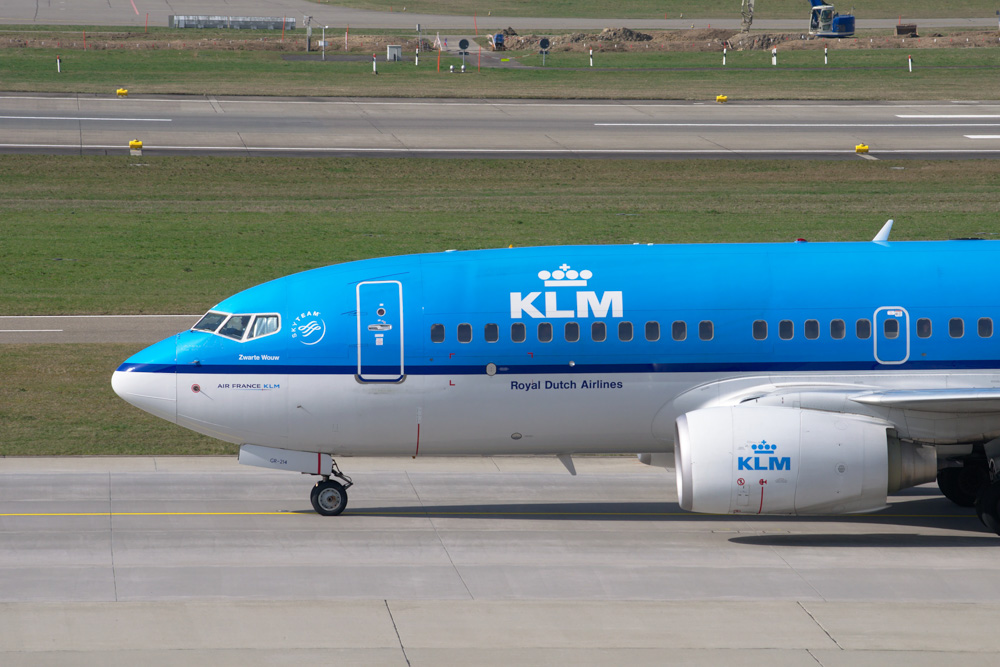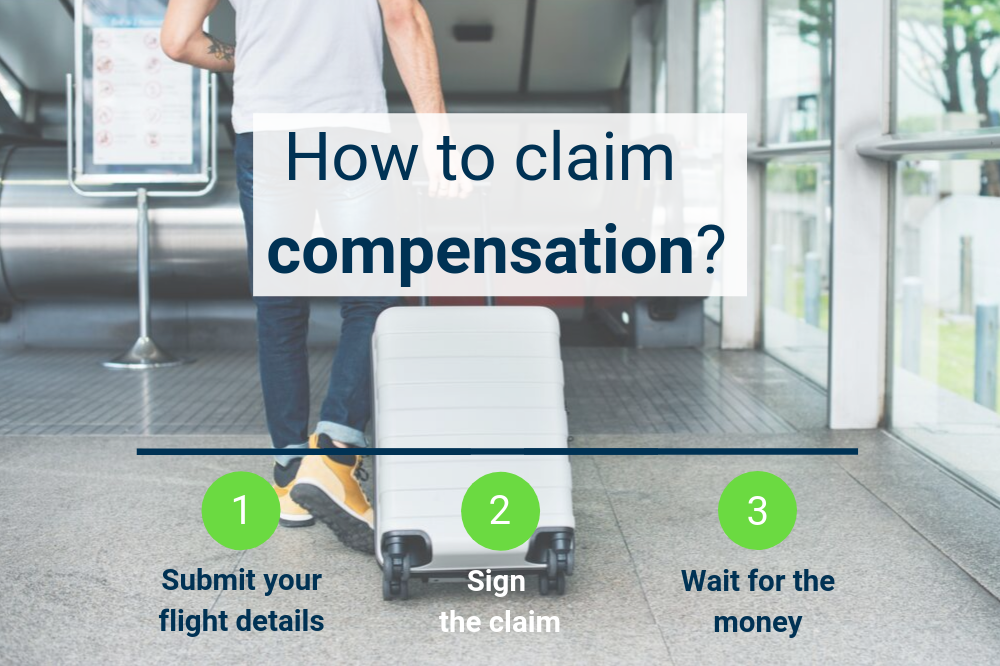Codeshare flights: How to claim compensation?
Have you ever been on a codeshare flight?
Chances are that you have been. Because it’s a common practice nowadays for airlines to cooperate and share a flight. But what happens if something goes wrong? Who’s gonna be held responsible if the flight is delayed or cancelled? What are your rights on codeshare flights?
Check your compensation online!
Or continue reading to learn more about your rights.
1. What is a codeshare flight?
To put it simply - it's a flight shared by several airlines.
If you have ever paid a closer attention to information shown on flight information screens at the airport, you have probably noticed it. That sometimes multiple flights depart at the same time and from the same gate. No, that doesn’t mean that there will be several flights departing to the same destination at the same time and from the same gate.
Because that simply would not be impossible.
It just means that it’s a codeshare flight.
Or simply -- a flight that’s shared between two or more airlines. This happens a lot. Nowadays many airlines cooperate and share their flights. It's a common practice in aviation.
1.1 Operated by another airline
Have you ever noticed “flight operated by” on your booking confirmation? Or on the internet, when checking your flight status online? Don’t worry - you haven’t made a mistake. Everything’s correct. It’s the flight you have booked.
But despite the fact that you booked a flight from Air France, you may now have to fly with KLM or airBaltic -- if that’s what your ticket says. Or maybe you booked a flight from Lufthansa, but you are flying with Austrian Airlines. That’s just how it works now.
There are codeshare flights (shared flights). And there are codeshare partners (airlines sharing a single flight). Just Google [any airline name] codeshare partners -- and you'll find a list of airlines that this particular airline works with (its codeshare partner airlines).
Let’s get more into details now!
What does it mean for you?

2. Codeshare flight cancelled / delayed. Who’s responsible?
Here's the thing. In an arrangement like this there is a marketing airline. That's the airline that sold the flight. And there is an operating airline. While marketing airline is responsible for finding solutions in case of cancellations and missed connections, operating airline pays flight compensation (when they make a mistake, and when it's due).
So, first of all - what airline did you fly with?
Second -- what exactly has happened?
- Flight compensation. If you want to know, which airline will pay compensation for delay or cancellation, it's the operating airline. If you booked your flight from Qatar Airways, but it was operated by airBaltic (you flew in an airBaltic aircraft) - airBaltic is gonna be held responsible for this.
- Re-booking, missed connection. Did you miss a connection? In this case, it's Qatar Airways responsibility to offer you a solution. They are the marketing airline in this arrangement.
This is how it works when there are several airlines.
2.1 Could you be entitled to compensation?
In many situations you could be entitled to it.
For example, here are 2 popular situations:
- Your flight is delayed for more than 3 hours, and it was due to the airline’s fault. In the EU, EEA, UK you most likely will be entitled to flight compensation.
- Your flight is cancelled because of the airline’s fault, and you have been informed about the cancellation less than 14 days in advance. In this situation as well you might be entitled to compensation up to 600 euro per person.
Flight cancelled more than 14 days before the trip? Click here.
Does it apply to all flights?
Everything is very simple here.
- If it was a European airline, these rules apply to all its flights to, from or within Europe*. Mostly that means all their flights. Because mostly European airlines flight either from or to European destinations.
- If it was a non-European airline, the following applies to all it’s flights from or within Europe. When flying with a non-EU airline you are slightly less protected.
The same rules apply also to charter airlines.
By Europe and EU we mean all EU Member States, the United Kingdom (UK), Guadeloupe, French Guiana, Martinique, Reunion, Mayotte, Saint Martin, the Azores, Madeira, the Canary Islands, Iceland, Norway, and Switzerland.
2.2 Codeshare flight: Compensation
How to claim compensation from airline?
What if one of your flights was delayed? Or cancelled last-minute? What if you missed a connecting flight due to delay of another flight?
Here are two of the best options you have:
1. You can try and do it on your own. Go to the website of the airline, find the right form, fill it, submit all the information they are asking for and wait. In some situations they will get back to you soon afterwards, in other - you will have to remind about your claim. Be prepared, that it takes a while.
Contact us, if you’ll need legal advice.
2. You can also take the shortcut.
Register your flight online at refundor.com.
We will do the rest.

When working with us, here is all you will have to do:
- Go to this page on our website;
- Fill in the details about yourself and your flight delay or cancellation;
- Upload your boarding pass and passport copy;
- Sign the claim online.
And… that’s it.
We’ll take it from here.
Remember - the airline operating the flight is the one you’ll be claiming your compensation from. Not the airline you bought your flight from.
2.3 What if you miss a connecting flight?
What kind of flight was it?
It was a connecting flight. If it was a connecting flight booked as a single journey, not separate flights, you’re protected. If the first flight of your journey is delayed and because of that you have missed your connecting flight, the marketing airline is responsible for booking you into the next available flight for free. If that has happened, contact the airline you booked your flight from.
That's the main reason a flight like this is called airline protected connecting flight connection. Because you are protected.
It was a self transfer. With self transfer flights this is going to be your responsibility. To find a new flight. To book that flight. And also to pay for a new flight. This is your responsibility that you missed the connecting flight, not airline's. That's also one of the risks of making your own connecting flights with low cost airlines.
3. What is a codeshare agreement?
An airline codeshare agreement, or a code share flight, is an arrangement where two or more airlines share the same flight. It’s a common practice for airlines to cooperate and share a flight. Codeshare agreement is a win-win situation, both for the companies and passengers.
How so? What makes it so good for passengers?
For instance, if KLM can’t fill their flights, they can partner with other airline, to share one flight. Thus, the aircraft doesn’t fly half empty, and the company doesn’t experience a huge loss. This way company avoids loss and offers another company to earn more money because there’s one more destination for them.
It also helps the other airline: codeshare agreement increases frequency of flights and number of destinations. As well as reduced operational costs and more profit.
More destinations = happier passengers.
It’s also easier for passengers. Thanks to codeshare agreements between the airlines, passengers can book direct flights under one booking reference. There’s no need to make two separate bookings. Not only it provides clearer routing for the customer, but it’s also less time consuming, as a passenger doesn’t need to search for the next flight.
And it's more safe for passengers.
Because these are protected connections.
3.1 Marketing airline and operating airline
In a codeshare agreement, there’s the Marketing Airline and the Operating Airline.
Marketing airline or marketing carrier is the airline which sells a connecting flight (another airline’s flight) as its own. While the operating airline or operating carrier is the airline that operates the flight. When it comes to EU flight compensation, you'll be contacting operating airline of that particular flight, but when it comes to missed connecting flight - marketing airline.
Marketing airline sells flights and deals with connections.
Operating airline operates flight and pays compensation.
4. How it all began?
The history of codeshare flights dates back to late 1960s.
But the term was invented in late 1980s by Qantas and American Airlines. The two companies provided their first codeshare flights between Australian and U.S. cities. Since then code sharing has become widespread. Most of the major airlines today have code sharing agreements.
Code sharing is also an important aspect of airline alliances.
5. Codeshare types
There are three types of codeshare agreements:
- Free flow codeshare. This is one of the most common types of code share agreements. Airlines sell other carrier’s flights as its own.
- Block space codeshare. The operating carrier sells a fixed number of seats to the marketing carrier.
- Capped free flow. Airlines sell other carrier’s flights as its own, but there’s a maximum number of seats that can be sold by the airlines participating in the codeshare.
6. Codeshare flights and luggage
Your baggage allowance is stated on the ticket.
Usually the baggage regulations of the airline under whose flight number this route was booked, apply. Also baggage regulations of the most significant route of the itinerary can apply. Check airlines’ webpage, just to be sure.
The carry-on baggage regulations comply with operating carrier’s carry-on baggage rules. For instance, your first flight is a Turkish Airlines flight, but your second flight is operated by airBaltic. The carry-on baggage regulations of the first flight comply with Turkish Airline's carry-on baggage rules, and those of the second flight comply with airBaltic’s carry-on baggage rules.
Carry on luggage restrictions are the same for all airlines.
6.1 Will your luggage will be checked through to your destination?
Check airlines' webpages to find out.
If you can’t find information on checked luggage and code share flights, the easiest way to find out is contact the one of the airlines. Also when checking luggage in at the airport, you’ll be notified if you need to collect and recheck it.
The easiest option -- ask at baggage check-in. Or look at the baggage tag, if you have done the drop-off at one of baggage drop-off machines.
Remember - whenever your flight is delayed, cancelled or you've been denied boarding - you might be entitled to flight compensation. Contact us to get it sorted out right away!
By Europe and EU we mean all EU Member States, the United Kingdom (UK), Guadeloupe, French Guiana, Martinique, Reunion, Mayotte, Saint Martin, the Azores, Madeira, the Canary Islands, Iceland, Norway, and Switzerland.